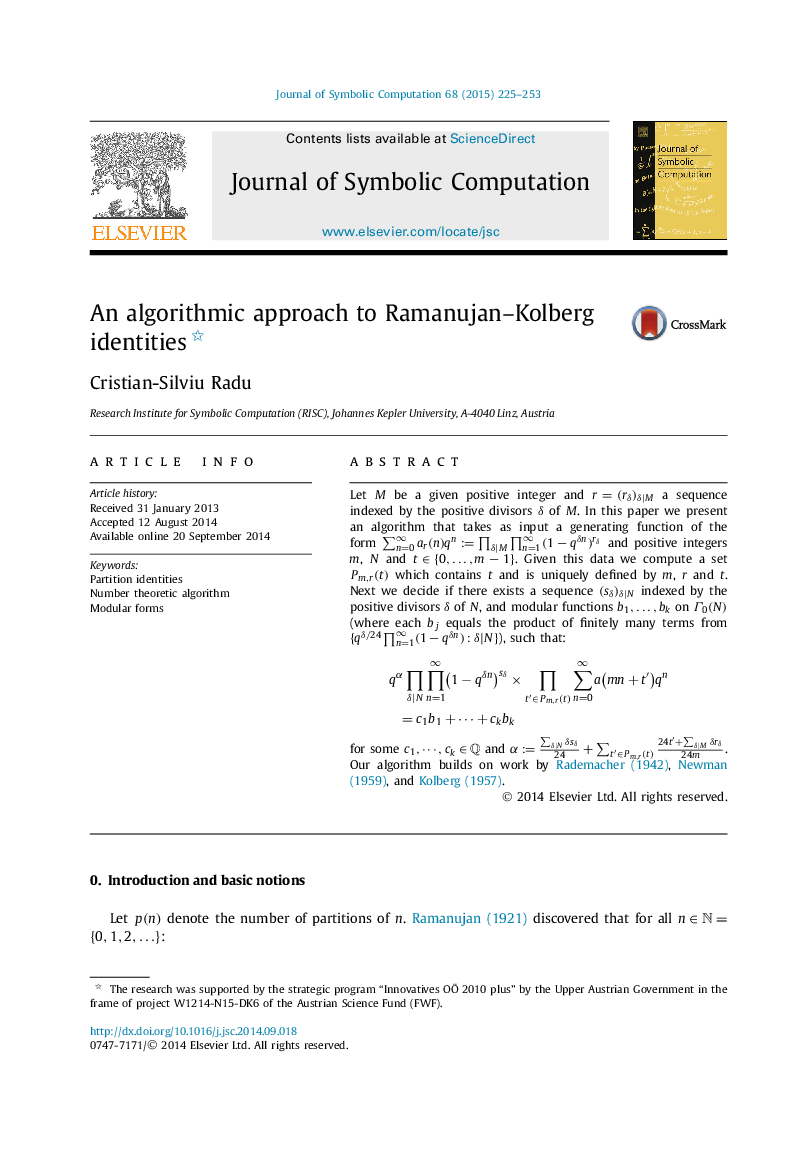| Article ID | Journal | Published Year | Pages | File Type |
|---|---|---|---|---|
| 401761 | Journal of Symbolic Computation | 2015 | 29 Pages |
Let M be a given positive integer and r=(rδ)δ|Mr=(rδ)δ|M a sequence indexed by the positive divisors δ of M . In this paper we present an algorithm that takes as input a generating function of the form ∑n=0∞ar(n)qn:=∏δ|M∏n=1∞(1−qδn)rδ and positive integers m, N and t∈{0,…,m−1}t∈{0,…,m−1}. Given this data we compute a set Pm,r(t)Pm,r(t) which contains t and is uniquely defined by m, r and t . Next we decide if there exists a sequence (sδ)δ|N(sδ)δ|N indexed by the positive divisors δ of N , and modular functions b1,…,bkb1,…,bk on Γ0(N)Γ0(N) (where each bjbj equals the product of finitely many terms from {qδ/24∏n=1∞(1−qδn):δ|N}), such that:qα∏δ|N∏n=1∞(1−qδn)sδ×∏t′∈Pm,r(t)∑n=0∞a(mn+t′)qn=c1b1+⋯+ckbk for some c1,⋯,ck∈Qc1,⋯,ck∈Q and α:=∑δ|Nδsδ24+∑t′∈Pm,r(t)24t′+∑δ|Mδrδ24m. Our algorithm builds on work by Rademacher (1942), Newman (1959), and Kolberg (1957).
